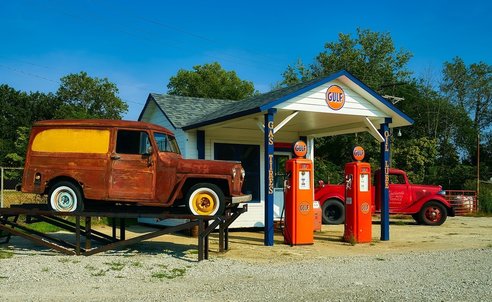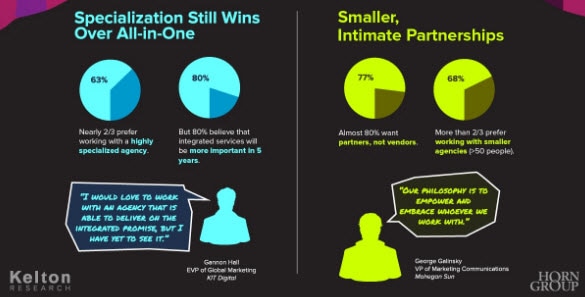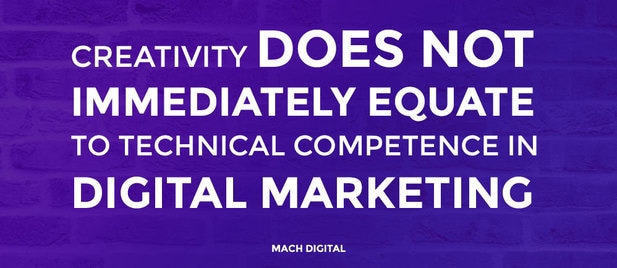|
(7 min read)
There are differing schools of thought on whether the idea of a 'full service digital marketing agency' is actually a good idea in reality. Many feel that a full service agency simply doesn't work in practice - the digital marketing skill set is far too varied and becoming more so all the time. So why do some agencies claim to be 'full service providers'? Is the concept itself flawed as they set out to 'specialise in everything'? Is it all just a myth? This article sets out to answer these questions along with helping you to decide which type of agency to partner with and why. The Amazing Agency That Does Everything, Really?
What is really meant by 'full service' when we talk digital marketing?
'Digital' in itself is a massively broad area (what isn't digital these days?) ... so where do you draw the line when talking 'full service'? Web hosting? IT services? Print? Or, even if we focus solely in the marketing direction, different digital marketing disciplines are highly specialised in their nature - such as SEO, SEM, Social Media, Content Marketing - and only becoming more so (we discussed the different areas of digital marketing with infographics in a recent blog post). It's a LOT for one agency to handle. Is it realistic then for an agency to refer to themselves as a 'full service agency' in the first place? (and what is the actual definition of a 'full service agency'?) Is this similar to saying 'we specialise in everything'? *shudder* The Challenge - Putting it All Together
If agencies then aren't truly 'full service', but there is a strong need for cohesion and alignment between marketing efforts, how do we put everything together?
As service offerings get added on and snowball there is the risk that a digital agency seeking to become too large or provide too wide a range of services simply becomes bloated, or diluted in some areas - such as 'a web design company who also does digital marketing'. Yes, the agency might physically have staff filling the roles , but the calibre/skill level can vary considerably - or as this article suggests, in some cases even ending up with junior staff handling parts of the project. Clients want specialists, not lightweights. This then leaves two other options for the agency: 1. Partner up with another provider(s) / outsource to provide a 'full service' experience 2. Choose a niche to specialise in and focus on that The Outsourcing Debate
There are many agencies that choose the outsourcing route. Whether an agency outsources can sometimes be a sticking point question (especially in Australia), when it probably shouldn't be.
Outsourcing should not, in itself, be a bad thing at all. If work is being outsourced to specialists then it can certainly be:
... and it should come at no compromise to quality. For the digital agency, the real challenge then is how well they can maintain the outsource relationship/s to ensure a minimum level of service to their clients. It's also worth noting that sometimes the 'outsourcing' can come in the form of a strategic partnership with another agency of a different skill set or speciality. If this experience is seamless, then there shouldn't actually be any problem with outsourcing. Which is Best? 'Full Service' Agency Vs Specialised?
Looking from client side, is it better to go with a 'full service' agency, or manage a number of smaller, specialised agency relationships?
This can vary depending on needs and situation. It could also depend on what resources you have available in house. It's always important to start with your marketing goals first. The 'Full Service' Agency Experience Above limitations considered, the convenience of having 'everything' in one place can still certainly be an attractive option, especially for smaller businesses. Depending on your needs, this might be the best arrangement for your organisation. However, do consider the points raised in this article. Be realistic on expectations (you may need to compromise a little in one or more areas for the sake of convenience) and generally try to avoid an overly 'one-stop-shop' mentality. There are limits to the definition of 'full service agency', as explained above.
Specialised Agency/s
If you already have a strong team or resources available in house, or already work with one specialised agency, it might make good sense to partner with a specialised agency (or a second or third one) that offer different or complimentary services, each focusing on their strengths to get the best overall result. On the flip side, over-diversifying and trying to manage too many separate agency relationships can create silos, impede communication and cohesiveness of strategy, be difficult to manage and create a risk of agencies 'stepping on each others' toes'. Managing several specialist digital marketing agencies can definitely take time and require specific skills. 'Boutique' Agency Vs 'Large' (Huge) Agency?
Closely linked to the previous point, this question is focused on 'size', and there are arguments for both sides.
Small / Boutique Agency An oft-referenced study from the Horn Group and Kelton Research in 2011 concluded that "two-thirds of chief marketing officers preferred agencies with 50 or less staff". Reasons cited for preferring a boutique/smaller agency included:
In the same study, 80% of respondents also mentioned that 'integrated services will be more important in 5 years' (2016). This prediction certainly seems to carry some weight. With so many available digital channels these days, it's becoming increasingly important for different teams to coordinate and work together to seamlessly align marketing campaigns, work towards unified goals and learn from each others' experiments and experiences. So, does this leave smaller agencies at a disadvantage?
It should be made clear at this point that there is a distinction between a 'full service' agency and a small, agile group of experts under one roof.
A smaller team that can provide integrated services but still remain light and agile may have the upper hand in many cases. Large / 'Huge' Agency Large agencies might come with more clout, an intimidating swathe of case studies and client experiences to draw from, formidable buying power and ample resources to get s**t done quickly. Though bigger isn't always better. Increased size potentially comes at the cost of agility. Especially in an industry that moves as fast as digital marketing, large agencies can take longer to turn, adapt, or implement the latest practices. Though top digital marketing companies may be able to leverage their industry relationships to manage this more effectively, shed weight when needed and keep much-needed momentum. There are also the corresponding counter-arguments to the pros raised above for choosing a smaller, boutique agency to potentially consider with larger agencies:
Depending on what your goals and values are, these points may or may not be as important. Creativity Over Experience
Have you ever seen an amazing-looking website, only to immediately realise that it takes 5-6 years to load? Or that the company can't be found anywhere in Google?
Creativity, without a question, is an essential part of marketing planning - just proceed with caution and don't become blinded by it. Creativity does not immediately equate to technical competence in digital marketing.
Depending on your situation and goals , it might make more sense to partner with a 'creative digital agency' or a 'digital creative agency'. If in doubt, always bring it back to your business goals and ensure that the agency has the ability to deliver on those. I.e. you don't want wonderfully creative and entertaining content that nets you new Facebook followers when your business goals all along were to drive conversions on your website. In Conclusion
Despite contention over the term 'full service', both full service agencies and smaller, specialised agencies can be effective, acting as an extension of your existing team and add tremendous value to your company's digital marketing efforts.
What matters most at the end of the day is that you find an option that works best for your situation, and partner with an agency (or agencies) that understands your needs and works with you to achieve your business goals. An agency should be large enough to be able to service your needs, but also specialised or creative enough to deliver excellent results in the key areas most important to your business. Need Some Unbiased Advice?
Chat with us and get advice on working with your agency or choosing your next digital agency partner.
0 Comments
Your comment will be posted after it is approved.
Leave a Reply. |





 RSS Feed
RSS Feed
